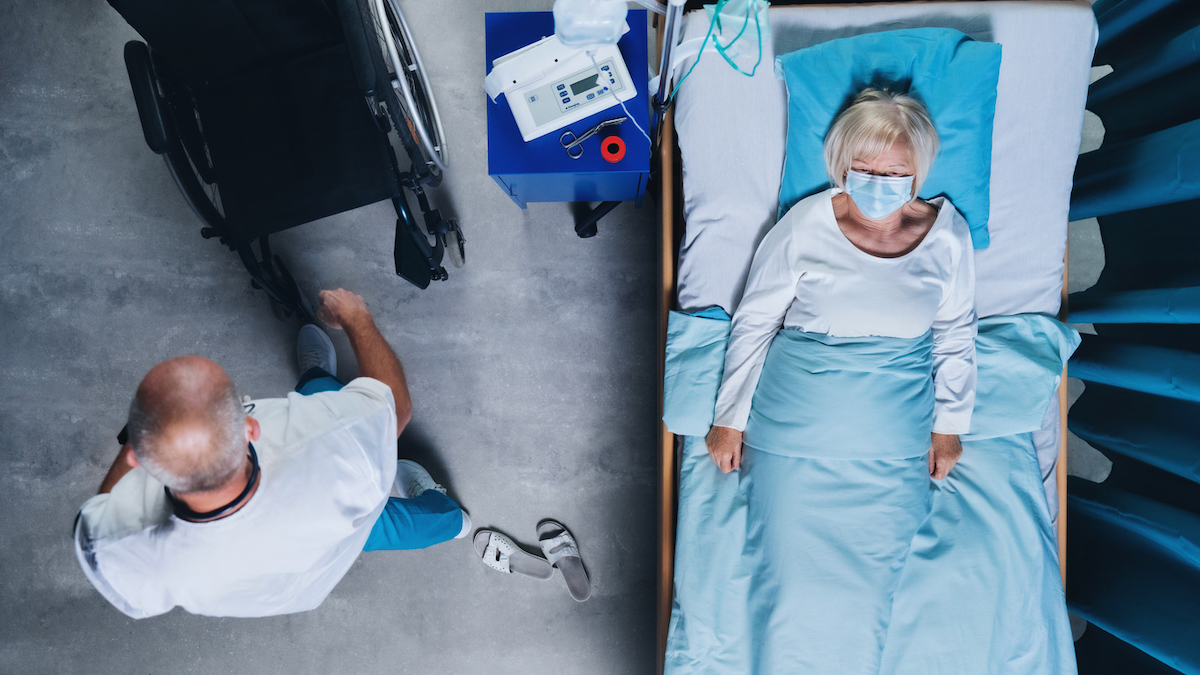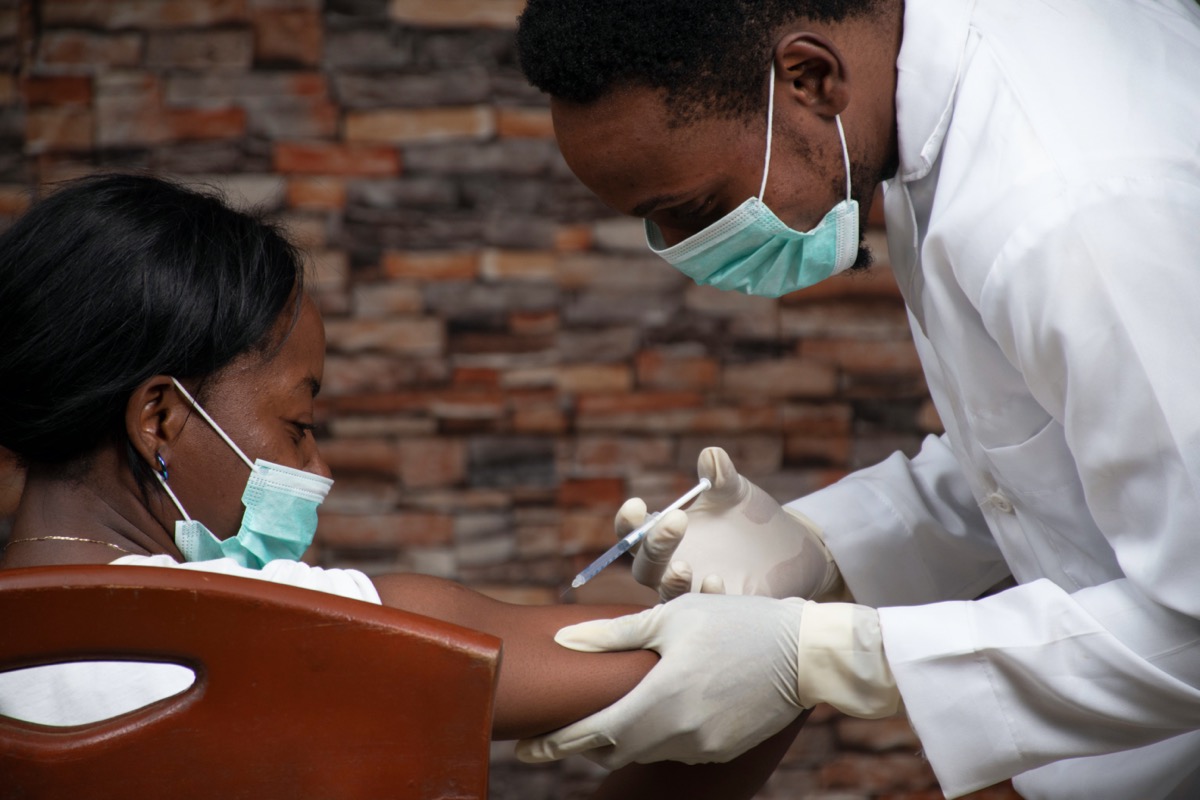In order to receive this newly approved treatment, you need to fall into one of the groups outlined by Eli Lilly and the FDA. People who test positive for COVID and have mild to moderate symptoms or are at high risk for progressing to severe COVID or hospitalization are eligible for this treatment. Additionally, the FDA noted people can only receive the treatment if they are 12 years of age or older and weigh at least 88 pounds. And for more up-to-date information, sign up for our daily newsletter.ae0fcc31ae342fd3a1346ebb1f342fcb While the treatment is suggested for preventative use for a patient who could be heading toward a severe case of COVID and hospitalization, the FDA explicitly notes that it’s not be used on people who are already in the hospital. “Bamlanivimab and etesevimab are not authorized for patients who are hospitalized due to COVID-19 or require oxygen therapy due to COVID,” the FDA says. The treatment has not been studied on hospitalized COVID patients. Per the FDA, “Monoclonal antibodies, such as bamlanivimab and etesevimab, may be associated with worse clinical outcomes when administered to hospitalized patients with COVID-19 requiring high flow oxygen or mechanical ventilation.” And for more ways to stave off a serious coronavirus case, This Common Medication Could Save You From Severe COVID, New Study Says. Eli Lilly reported that a late-stage trial in January showed that their combination therapy helped reduce the risk of COVID-related hospitalizations and death by 70 percent. The treatment will be available immediately. According to Eli Lilly, there are already 100,000 doses ready to go and an additional 150,000 doses to come throughout the first quarter. The company plans to manufacture up to one million doses by mid-2021. And for more on your coronavirus risk, If You’ve Done This, You’re Twice as Likely to Develop Severe COVID. The treatment is administered in a single shot that’s a combination of bamlanivimab and etesevimab. The FDA reports that when administered, it significantly reduces COVID-related hospitalizations and deaths in the following 29 days as compared with a placebo. The treatment uses monoclonal antibodies, which are “laboratory-made proteins that mimic the immune system’s ability to fight off harmful pathogens such as viruses.” Bamlanivimab and etesevimab are specifically targeted to work against the spike protein in COVID by blocking the virus’ ability to attach and enter into human cells. And for more ways to stay healthy, These 3 Vitamins Could Save You From Severe COVID, Study Finds.



